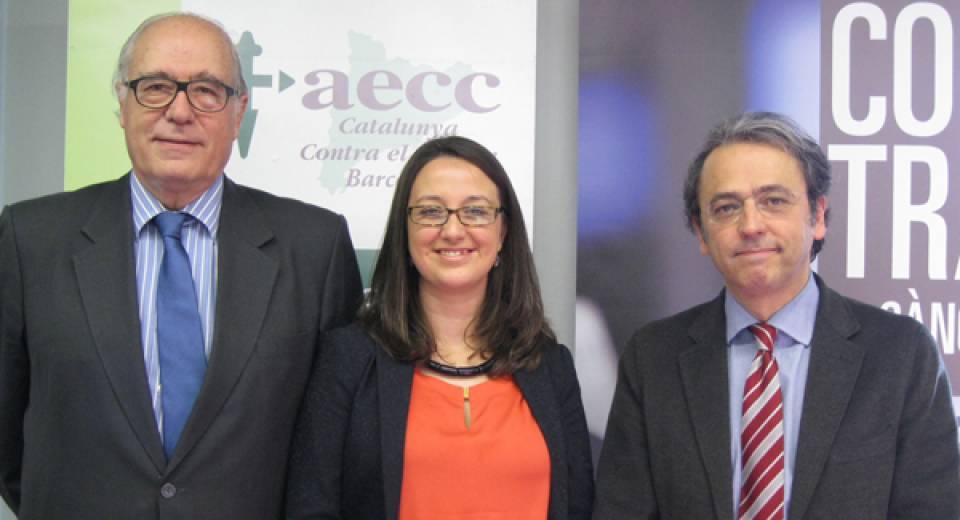The research has established a molecular classification for ICC that has resulted in the identification of two subclasses, one more aggressive than the other and with different characteristics. This work, unique in Spain and pioneering worldwide, has analyzed tumor tissue from 150 patients and studied the genetic alterations related this cancer so unknown from a molecular perspective.
The results obtained in the first part of the research offer information about the different biological behavior of the tumor. Based on this discovery, researchers will continue to study the cancer sensitivity to different drugs and will design a personalized therapy directed at each specific molecular alterations. The results will offer information about risk factors and genetic predisposition. This second part of the research will last approximately four more years.
The AECC Barcelona, through its Scientific Foundation, funded with € 1,200,000 this research, for a period of five years (2011 to 2016). The funding, one of the largest from a private donor in Spain, is fruit of the association's commitment to encourage stability and excellence in cancer research in Spain. Juli de Miguel, President of the Cancer AECC Catalonia Barcelona, and Àngela Sánchez Martorell, manager of AEEC – Catalunya against cancer Barcelona, took part in a presentation of the results and argued that the role of the institution they represent is also directed to support research and knowledge in orphan cancers where it is particularly necessary to identify therapeutic targets. The ICC is a cancer with a very poor prognosis and few treatment options, which incidence has increased in a 10% per year in the last decade. In Spain up to 400 - 500 cases are diagnosed every year. Of those, only about 30-40% will be selected to receive a surgical treatment. The 5-year survival is between 20 and 40%.

